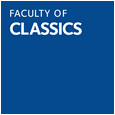The present contribution endeavors to assess the consequences and implications of identifying verse oracles in Herodotos as components of the tradition of oral narrative Herodotos himself was heir to, rather than as actual utterances of the Pythia. Three lines of argument are pursued. First, it is argued that ancient evidence for oracular practice at Delphi, supplemented with numerous inscriptions from the oracular sanctuary of Dodona, does not offer strong support to the notion that the prophetess in Delphi, or in any other Greek oracular sanctuary for that matter, uttered responses in verse. Second, a concise survey of ancient learned discussions on verse oracles may be taken to show that evidence for such a practice was lacking already in antiquity: verse oracles were constantly referred to as a thing of the past that nobody really had experience of. Third, a scrutiny of the way the words of oracles were handled points to the likelihood that fidelity to the words pronounced by the Pythia was not understood in antiquity as verbatim accuracy in rendering oracles – a notion that one may suspect of being anachronistic anyway. Finally, brief remarks are offered regarding the implications of these arguments for our understanding of the oral narrative tradition that Herodotos’ Histories in many ways originate from.
Plutarch
,oracles
,hiera orgas
,Chrysippos
,Dodona
,Delphi
,inscriptions
,Theopompos
,responses
,Pythia
,Herodotos



